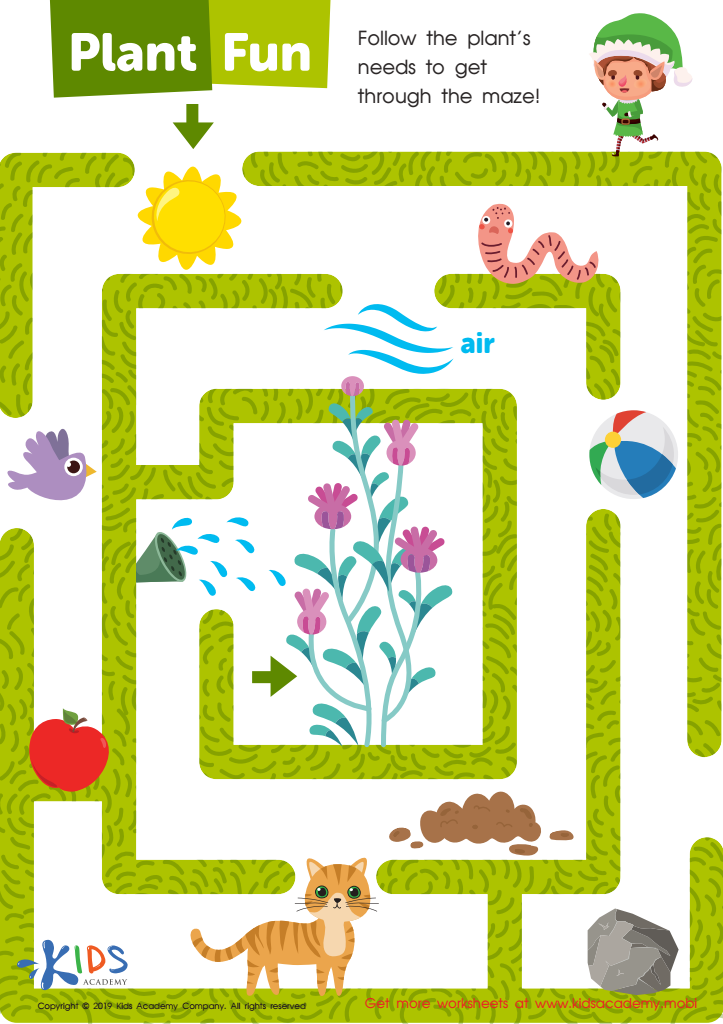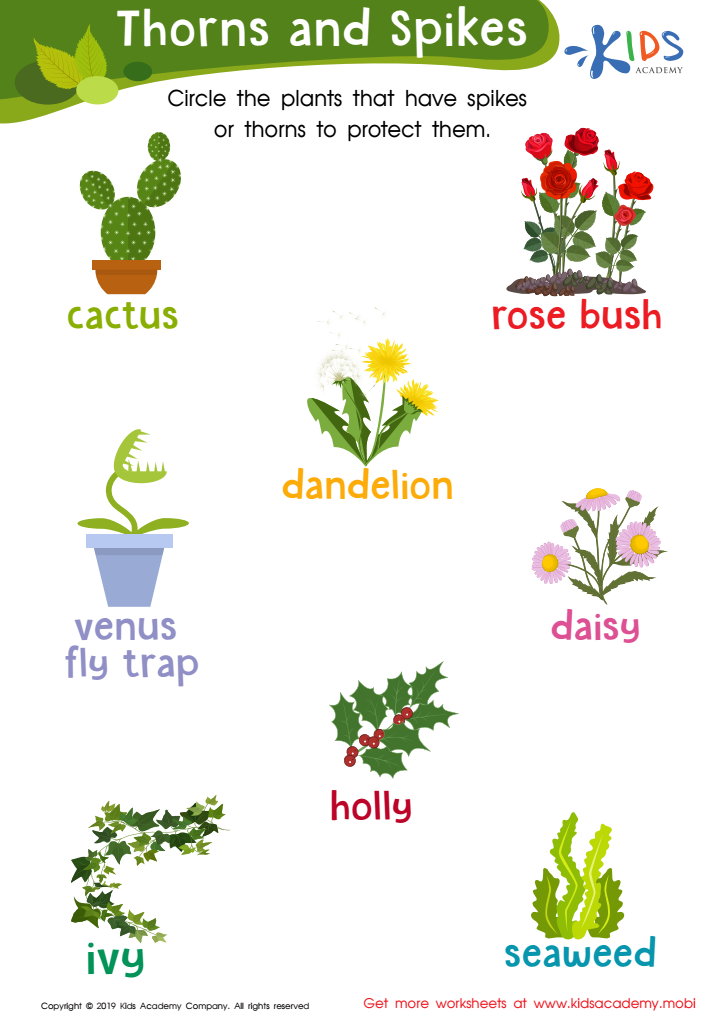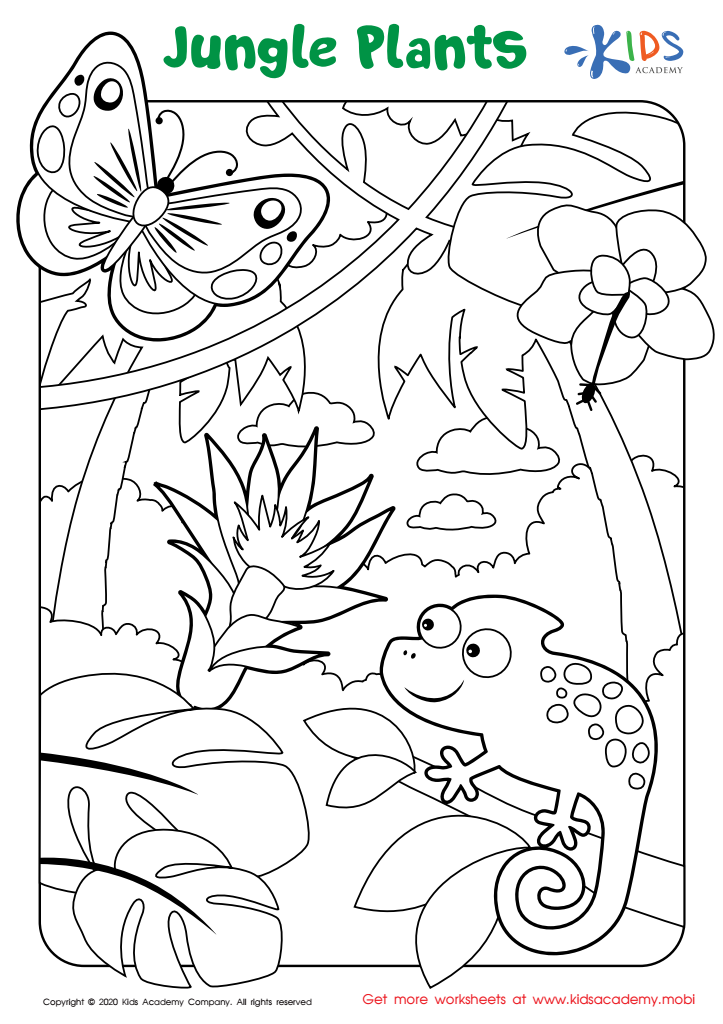Plant identification Science Worksheets for 5-Year-Olds
3 filtered results
-
From - To
Explore the fascinating world of plants with our engaging Plant Identification Science Worksheets designed specifically for 5-year-olds! These fun and interactive worksheets introduce young learners to various plant types, their characteristics, and their importance in our environment. Perfect for nurturing curiosity about nature, each activity encourages hands-on learning, critical thinking, and creativity. With colorful visuals and simple instructions, children will enjoy identifying plants and developing early scientific skills. Ideal for home or classroom use, these worksheets promote exploration and appreciation for the natural world, laying the foundation for a lifelong love of science. Start your child’s botanical adventure today!


Plant Fun Worksheet


Thorns and Spikes Worksheet


Jungle Plants Worksheet
Plant identification science is essential for 5-year-olds, offering numerous benefits that parents and teachers should prioritize. Engaging young learners with the natural world fosters curiosity and a love for nature, contributing to their cognitive and emotional development. Understanding plants enhances critical thinking skills as children learn to classify and differentiate various species, promoting observation and analytical skills.
Moreover, identifying plants introduces essential concepts such as biodiversity, ecosystems, and the environment’s role in our daily lives. Children gain an appreciation for nature, encouraging them to become responsible stewards of the environment later on. It also lays the groundwork for science education, sparking interest in biology and environmental science that can flourish as they progress in their academic careers.
Additionally, plant identification helps fulfill educational goals such as enhancing vocabulary and language skills through descriptive learning. Activities such as scavenger hunts and nature walks exhibit teamwork and social interaction, boosting social skills and cooperation. Lastly, recognizing and appreciating plants can have therapeutic benefits, reducing stress and enhancing mood, making it crucial for overall well-being. Therefore, parent and teacher involvement in plant identification science is vital for holistic child development and instilling a lifelong appreciation for the natural world.

 Assign to My Students
Assign to My Students



















